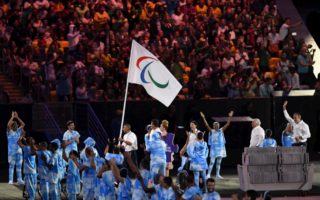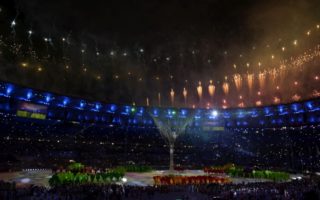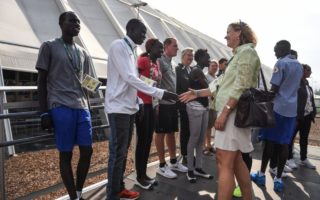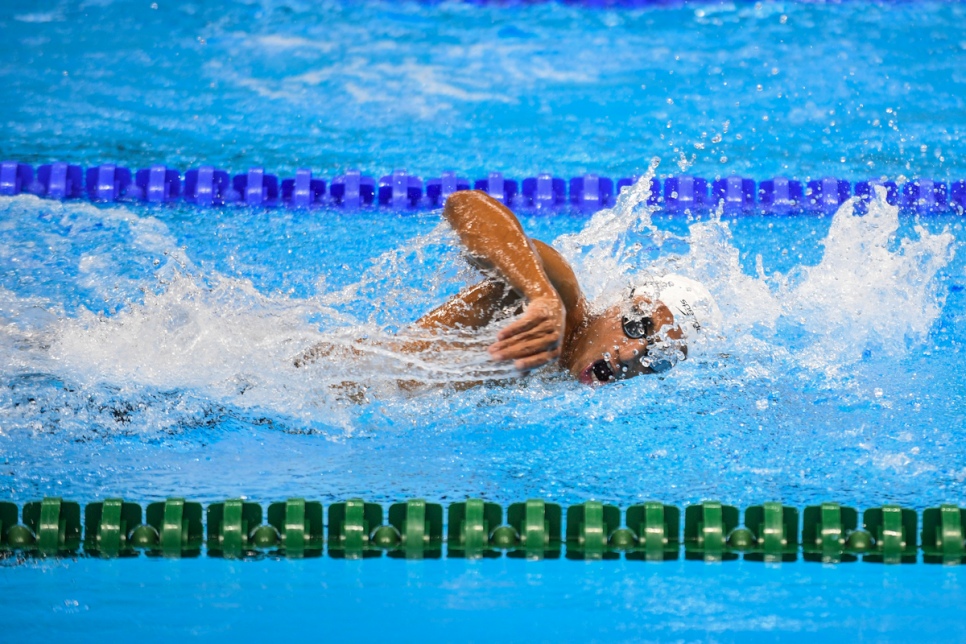
Syrian swimmer Ibrahim Al-Hussein competes in the 100 metre freestyle at the 2016 Paralympic Games in Rio de Janeiro, Brazil. © UNHCR/Benjamin Loyseau
RIO DE JANEIRO, Brazil – Syrian swimmer Ibrahim Al-Hussein made a splash at the 2016 Paralympic Games in Rio de Janeiro in the heat of the 100-metre freestyle on Monday.
While he did not make it through to the final in the S9 category, he proved to the world that disability is no barrier to competition and that refugees can compete on the world stage.
“My dream has come true … To compete in the Paralympics was a very beautiful feeling.”
“My dream has come true here … in Brazil. To compete in the Paralympics was a very beautiful feeling,” he told UNHCR shortly after climbing out of the pool.
Ibrahim is one of two para-athletes who faced the additional challenge of being displaced from their homeland making history as the first ever Independent Paralympic Athletes Team to compete in the Games.
Originally from Deir ez-Zor in Syria, Ibrahim competed at local and national swim meets in a career cut short five years ago by the outbreak of war.
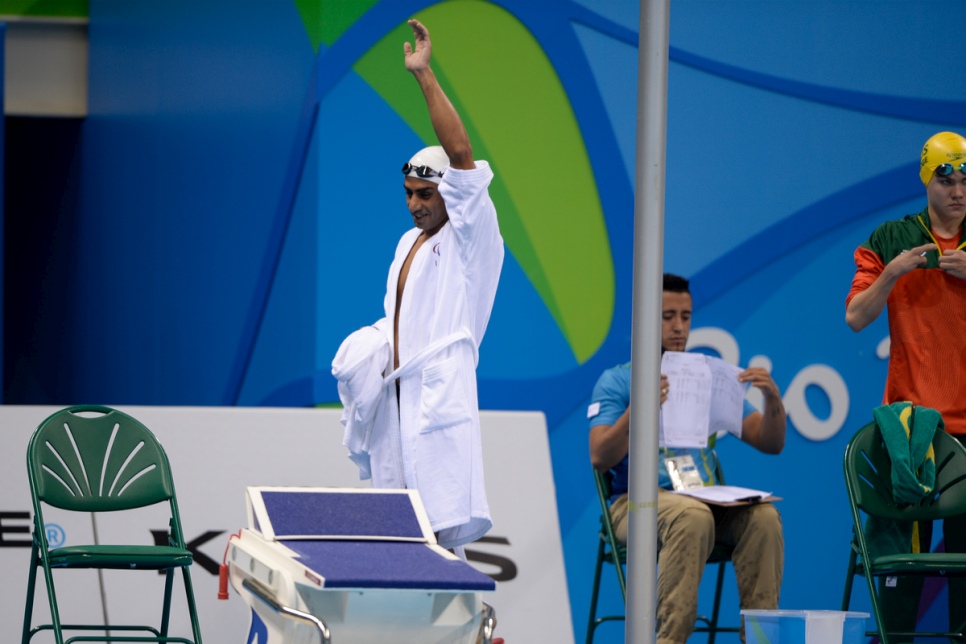
Swimmer Ibrahim Al-Hussein arrives at the pool for the 100 metre freestyle race at the 2016 Paralympic Games in Rio de Janeiro. © UNHCR/Benjamin Loyseau
After losing the lower part of his right leg in a bomb blast in 2013, he fled to Turkey where he spent much of the next year learning to walk again.
In 2014, he boarded an inflatable boat to Greece, where he resumed competitive swimming just last year, after a five-year break.
“I should have performed much better, I am capable of performing much better. But the fact that I was not playing sports for five years made it difficult,” Ibrahim said, adding that he hoped to perform better in the 50 metre heat in the S9 category on Tuesday.
Ibrahim led the parade of athletes into the famed Maracanã Stadium at the Paralympic Games’ Opening Ceremony last week, cheered on by a crowd of more than 70,000 spectators.
“I should have performed much better. The fact that I was not playing sports for five years made it difficult.”
Also part of the team is Shahrad Nasajpour, an Iranian athlete with cerebral palsy, who has been granted asylum in the United States.
Shahrad competed in the F37 discus final on Thursday, where he threw a season’s best of 39.64 metres, but did not take home a medal. He has declined to share his story for personal reasons.
The squad are following in the tracks of the hugely popular Refugee Olympic Team, which made history at the 2016 Summer Olympic Games.
The 10 athletes in that squad did not win medals, but won hearts around the world representing the courage and perseverance of the world’s refugees and displaced people – a population that now exceeds 65 million.
By: Diogo Felix



